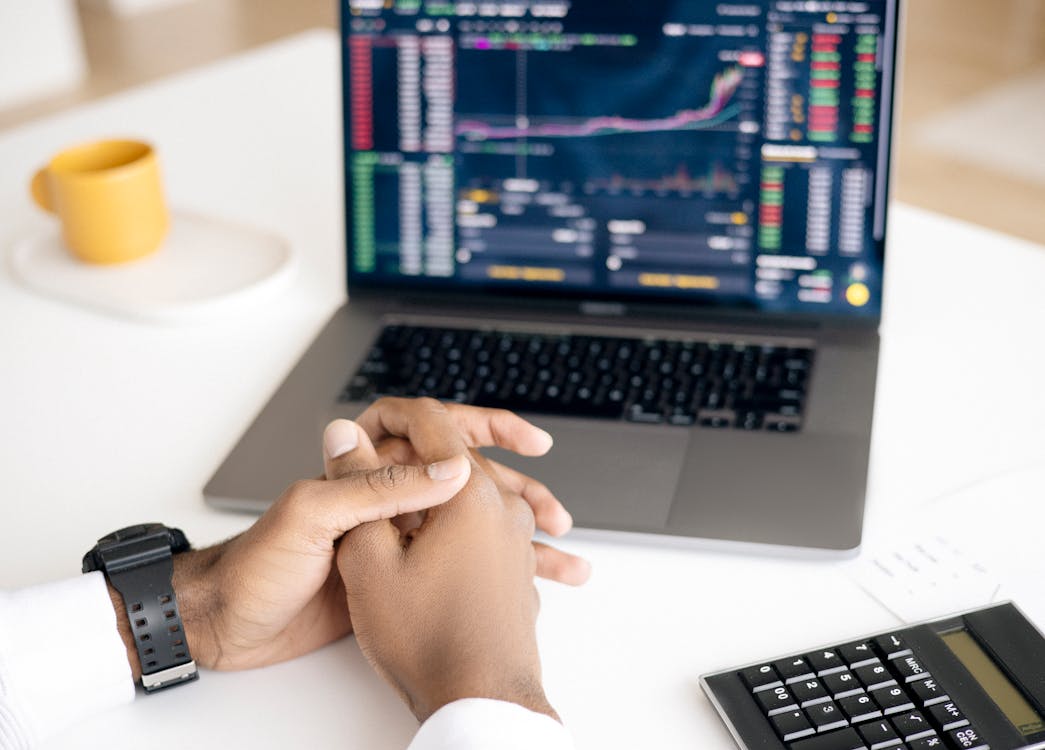How Computers Trade Stocks: A Comprehensive Guide
Author: ChatGPT
March 05, 2023
Introduction
In the modern world, computers are increasingly being used to trade stocks. This is because computers are able to process large amounts of data quickly and accurately, making them ideal for stock trading. But how exactly do computers trade stocks? In this blog post, we’ll take a look at the different ways in which computers can be used to trade stocks and what advantages they offer over traditional methods.
What Is Stock Trading?
Before we dive into how computers can be used to trade stocks, let’s first take a look at what stock trading is. Stock trading is the buying and selling of shares in publicly traded companies. When you buy a share of a company’s stock, you become an owner of that company and are entitled to any dividends or profits that the company makes. When you sell your shares, you receive money for them based on their current market value.

How Do Computers Trade Stocks?
Now that we know what stock trading is, let’s take a look at how computers can be used to trade stocks. There are several different ways in which computers can be used for stock trading, including algorithmic trading, automated trading systems, and artificial intelligence (AI).
Algorithmic Trading
Algorithmic trading is the use of computer algorithms to automatically execute trades based on predetermined criteria. Algorithmic traders use complex mathematical formulas and computer programs to analyze market data and make decisions about when to buy or sell stocks. Algorithmic traders typically use high-frequency strategies that involve making many trades in a short period of time. This type of trading has become increasingly popular in recent years due to its ability to quickly identify profitable opportunities in the markets.
Automated Trading Systems
Automated trading systems are computer programs that automatically execute trades based on predetermined criteria without any human intervention. These systems are designed to monitor the markets for specific conditions and then execute trades when those conditions are met. Automated trading systems can be programmed with different strategies such as trend following or mean reversion strategies. They can also be programmed with risk management rules such as stop losses or position sizing rules. Automated trading systems have become increasingly popular due to their ability to quickly identify profitable opportunities in the markets without requiring any human intervention or emotion-based decision making.

Artificial Intelligence (AI)
Artificial intelligence (AI) is the use of computer algorithms and software programs that mimic human intelligence and behavior when making decisions about when to buy or sell stocks. AI-based systems use machine learning algorithms that analyze large amounts of data from past market movements in order to identify patterns and make predictions about future price movements. AI-based systems have become increasingly popular due to their ability to quickly identify profitable opportunities in the markets without requiring any human intervention or emotion-based decision making.
What Are The Advantages Of Using Computers To Trade Stocks?
There are several advantages of using computers for stock trading compared with traditional methods such as manual analysis or fundamental analysis:
* Speed – Computers can process large amounts of data quickly which allows them to make decisions faster than humans could ever hope too; this means they can capitalize on short-term price movements more effectively than humans could ever hope too;
* Accuracy – Computers don’t get tired or make mistakes like humans do; this means they can consistently make accurate decisions;
* Cost – Using computers for stock trading eliminates many costs associated with manual analysis such as labor costs;
* Flexibility – Computers allow traders to customize their strategies according to their own preferences; this means they can tailor their strategies according specific market conditions;
* Risk Management – Computers allow traders set up risk management rules such as stop losses which help protect against large losses;
* Diversification – Computers allow traders diversify their portfolios by investing across multiple asset classes simultaneously; this helps reduce overall portfolio risk while still allowing traders access potential returns from multiple asset classes at once;

Conclusion
In conclusion, using computers for stock trading offers many advantages over traditional methods such as manual analysis or fundamental analysis including speed, accuracy, cost savings, flexibility, risk management capabilities, and diversification potentials among others. As technology continues advancing at an ever increasing rate it’s likely that more people will start using computers for stock trading in order take advantage of these benefits offered by technology over traditional methodsI highly recommend exploring these related articles, which will provide valuable insights and help you gain a more comprehensive understanding of the subject matter.:www.cscourses.dev/how-much-stock-trading-is-done-by-computers.html, www.cscourses.dev/startup-stocks-with-potential.html
